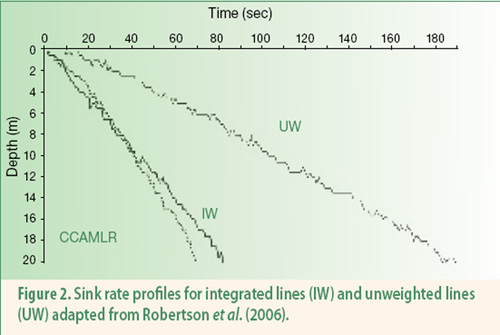The Sixth Meeting of the ACAP Advisory Committee, to be held at the end of August in Guayaquil, Ecuador, will consider reports from projects funded in 2009 and 2010. See ACAP Information Papers AC6 Inf 08 & AC6 09) for progress reports for 2009 grants and project objectives for those funded in 2010.
Lists of the funded projects by title and successful applicant follow. Selection of projects for funding is undertaken by the Grants Sub-Committee and approved by the Advisory Committee.
2009
Eight projects were supported during the 2009 call for applications. All projects have made significant headway in meeting the outcomes indicated in the initial applications.
ACAP 2009-01. Development of ACAP database-generated Implementation Reports (ACAP Secretariat).
ACAP 2009-02. Improving Waved Albatross Conservation: Monitoring Changes in Population Size and Vital Rates (Kathryn Huyvaert, Colorado State University, USA).
ACAP 2009-04. Responding to the evolution of Peru's artisanal longline fleet: characterising fleet mechanisation and introducing weighted swivels (Jeff Mangel & Joanna Alfaro-Shigueto, Pro-Delphinus, Peru).
ACAP 2009-05. Seabird interactions with trawl fishery for Peruvian hake in northern Peru (Liliana Ayala, APECO, Peru).
ACAP 2009-06. Fact sheets for best practice techniques to mitigate seabird bycatch in pelagic longline, demersal longline and trawl fisheries (Ben Sullivan, BirdLife International).
ACAP 2009-09. Implementation of a Scientific Observer Programme to Evaluate the Interaction of Seabirds with Demersal Fisheries in the South of Chile (Jorge Azocar, Instituto de Fomento Pesquero, Chile).
ACAP 2009-10. Regional workshop "Improving data collection on incidental mortality of seabirds from South American Observer Programmes" (Argentina, Brazil, Chile, Ecuador, Peru, Uruguay).
ACAP 2009-11. A stepped approach to evaluating the effectiveness of a fast sinking line-weighting regime (Graham Robertson, Australian Antarctic Division, Australia).

2010
Following are the projects supported by the Advisory Committee in 2010.
ACAP 2010-01. At-sea distribution of the WAAL [Waved Albatross] and overlap with fishing fleets of the central Peruvian coast (Joanna Alfaro-Shigueto & Jeffrey C. Mangel, Pro Delphinus, Peru)
ACAP 2010-03. Evaluating alternative approaches to predicting at-sea distributions and fisheries overlaps of ACAP species in Ecological Risk Assessments (Richard Phillips, British Antarctic Survey)
ACAP 2010-04. Concluding six years of research on seabird bycatch reduction through modified discharge management regimes: Is batch discharge better than ad-hoc discharge from trawl? (Johanna Pierre, Ministry of Research, Science and Technology, New Zealand)
ACAP 2010-09. Internal Consultation Process for the Consolidation of the National Plan of Acton for the Conservation of Seabirds in Peru (Elisa Goya, Instituto del Mar del Perú; Arturo Gonzáles Araujo, Dirección General de Extracción y Procesamiento Pesquero, Ministerio de la Producción).
ACAP 2010-10. Defining high-risk areas in the Argentinean Continental Shelf: to which extent albatrosses and petrels interact with the Argentine high-seas commercial trawl fleet? (Sofía Copello and Juan Pablo Seco Pon. CONICET-UNMDP, Argentina).
ACAP 2010-11. Improving data collection on seabird incidental mortality associated with fisheries in South American observer programmes: Part II - year 2011 (Argentina, Brasil, Chile, Ecuador, Peru, Uruguay)
ACAP 2010-13. Final on-shore development of ‘hook-pod' to reduce seabird bycatch in pelagic longline fisheries (Ben Sullivan, BirdLife International).
ACAP 2010-15. Estimates of the Waved albatross mortality in artisanal fisheries during the critical period of incubation (Jorge Samaniego, GSP BirdLife - Aves & Conservación, Ecuador).
John Cooper, ACAP Information Officer, 1 August 2011

 English
English  Français
Français  Español
Español